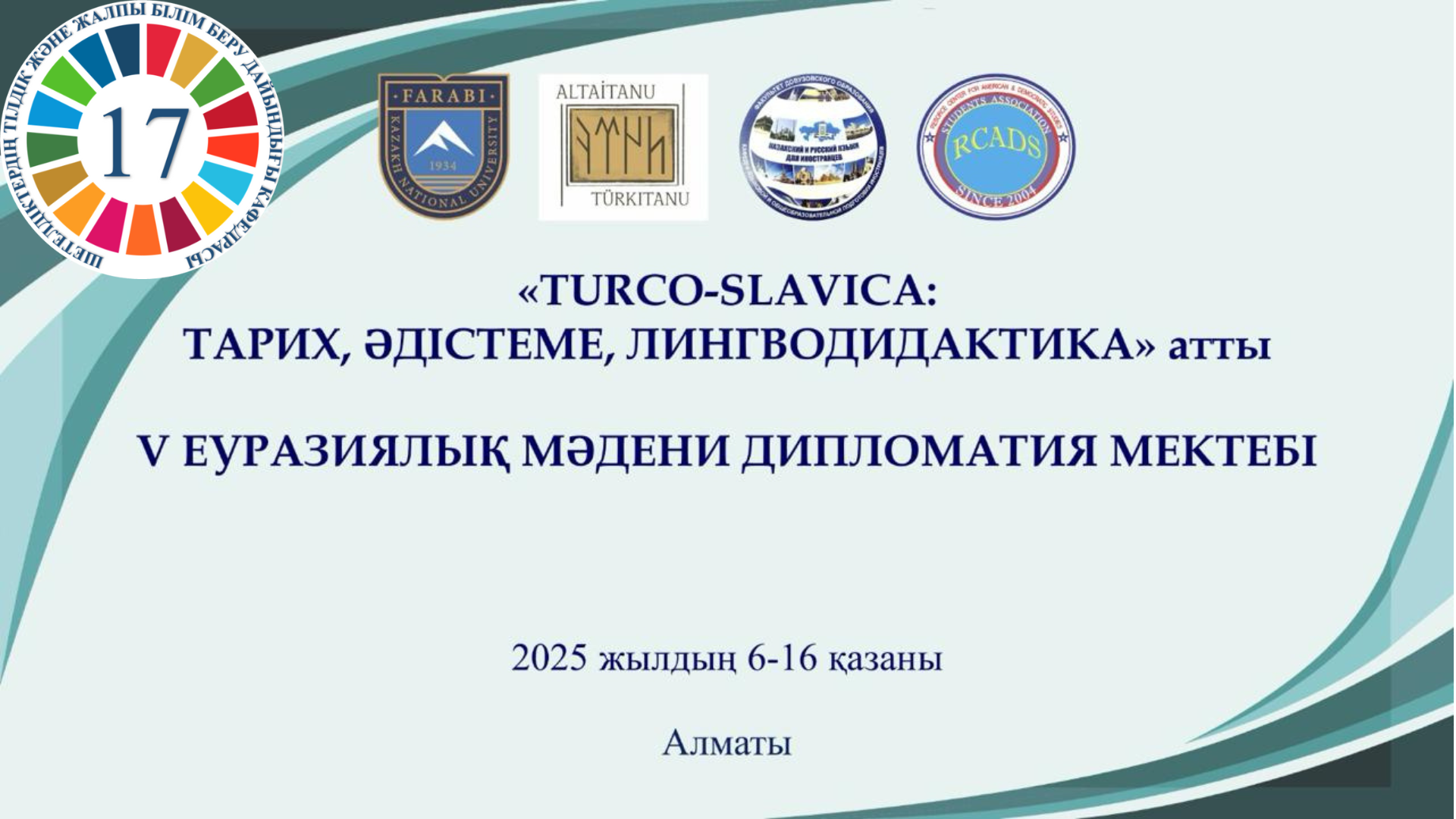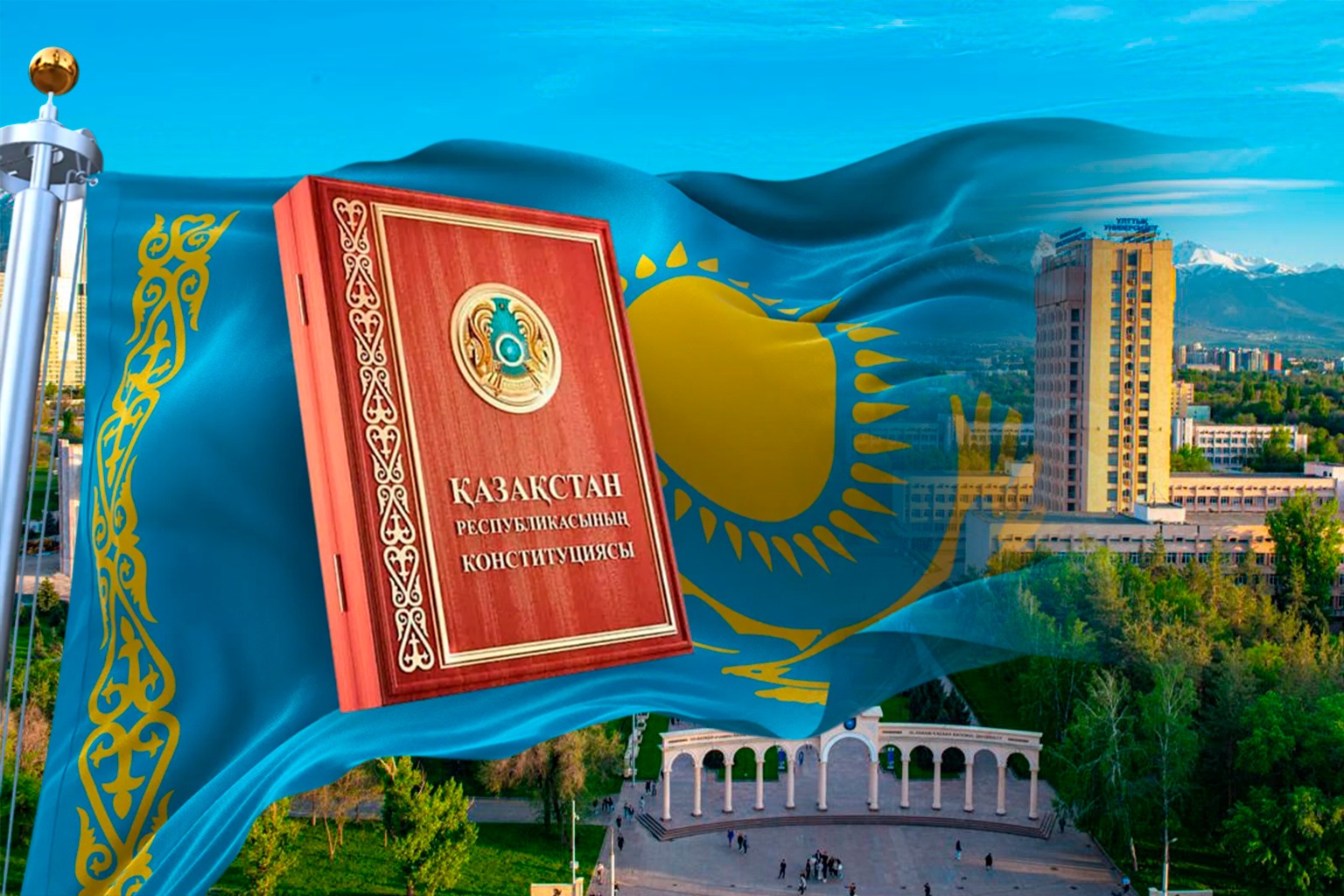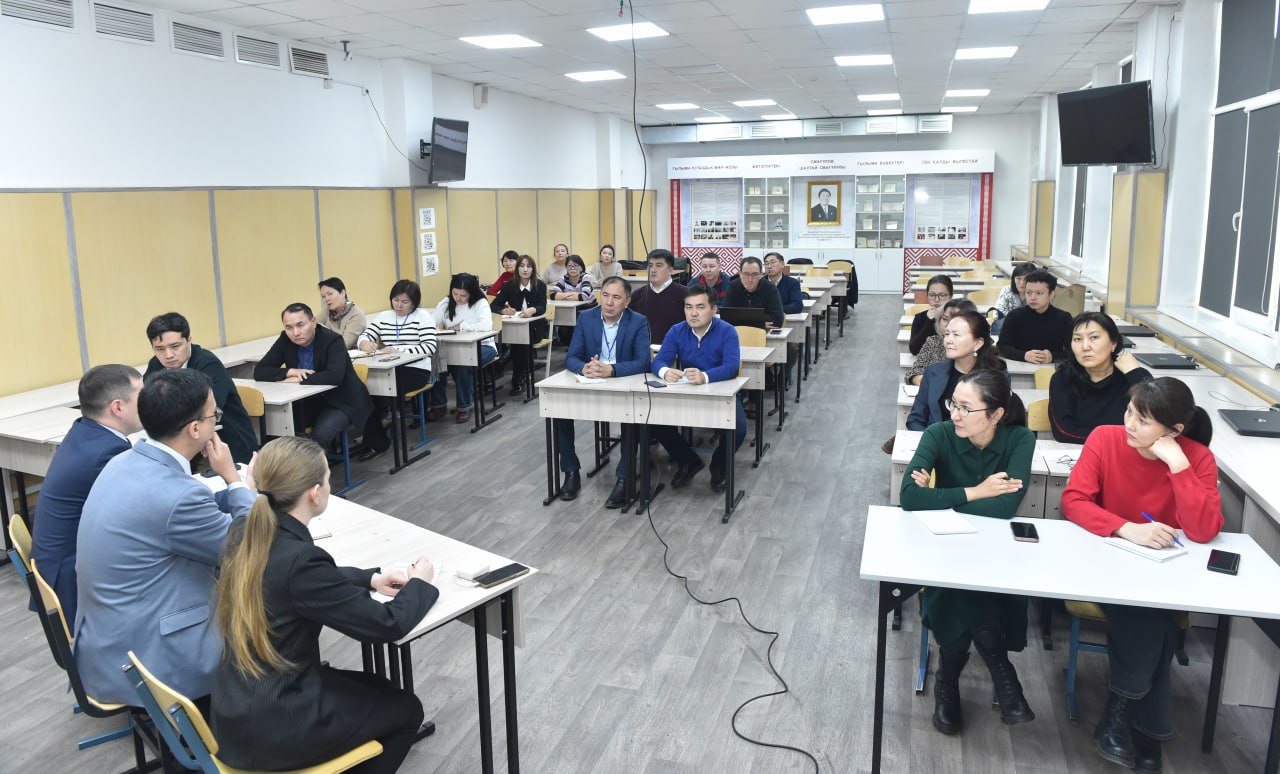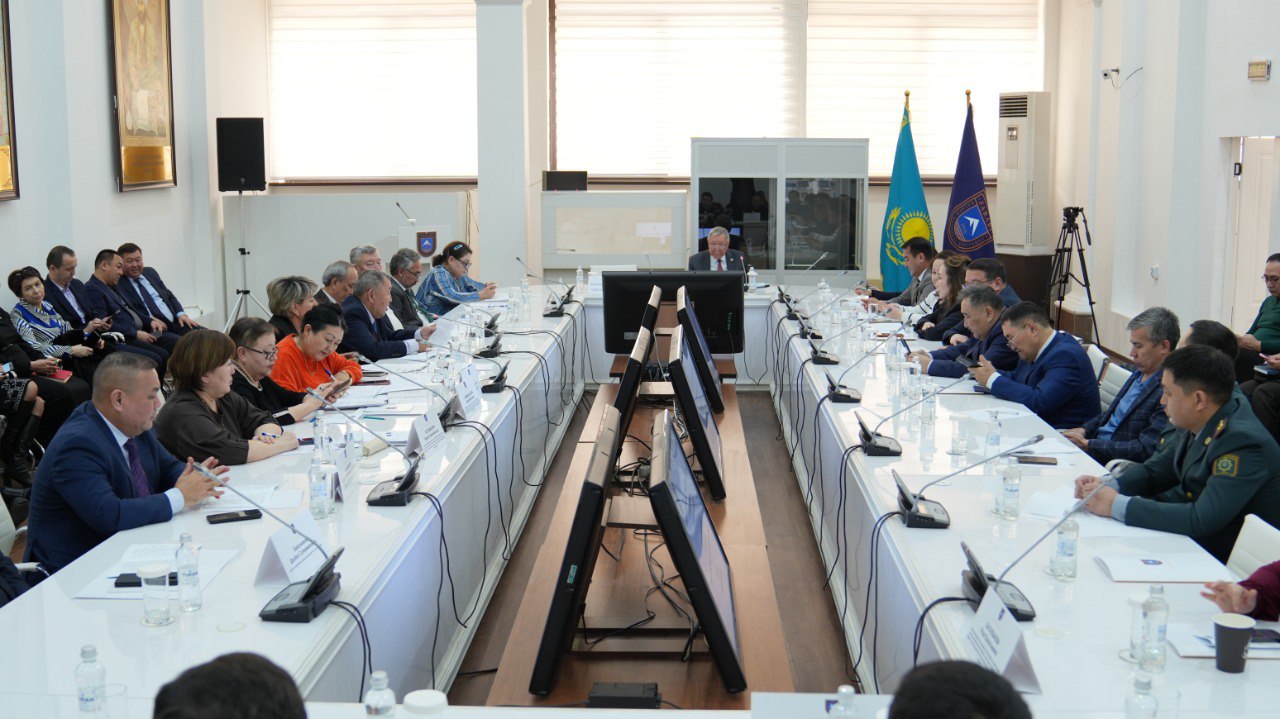- Main
- News
- 5th Eurasian School of Cultural Diplomacy "TURCO-SLAVICA: History, Methodology, Linguodidactics" Integration of scientific approaches and development of intercultural dialogue
5th Eurasian School of Cultural Diplomacy "TURCO-SLAVICA: History, Methodology, Linguodidactics" Integration of scientific approaches and development of intercultural dialogue

From October 6-16, 2025, the 5th Eurasian School of Cultural Diplomacy, "Turco-Slavic Studies: History, Methodology, and Linguodidactics," was held at Al-Farabi Kazakh National University. This event is a significant event in the scientific and educational life of the countries of the Eurasian space. The event was held with a grant from the Ministry of Science and Higher Education of the Republic of Kazakhstan for the project "Turkic Languages of Kazakhstan in the Context of Spiritual Modernization of Society: From Graphics to Epic Text" [IRN AP23486380], implemented under the Program of Scientific and Technical Projects for 2024-2026. The forum brought together researchers, teachers, and experts in the fields of Turkology, Slavic studies, cultural studies, and pedagogy, promoting a deeper theoretical understanding of the processes of interlingual and intercultural interaction in the Eurasian space. The event was organized by the Research Institute of Turkic and Altaic Studies and the Department of Language and General Education for Foreigners of the Faculty of Pre-University Education. The school was held in a hybrid format, which allowed for the participation of researchers and students from various countries. Scholars from Kazakhstan, Kyrgyzstan, Uzbekistan, and Russia actively participated in the 5th Eurasian School of Cultural Diplomacy.
During the plenary session, participants presented papers reflecting current trends in the development of humanities knowledge and the contemporary transformation of research paradigms. Professor N. Shaimerdenova (Executive Director of the Research Institute of Turkic and Altaic Studies at Al-Farabi Kazakh National University) focused on the conceptual understanding of the role of artificial intelligence technologies in the development of humanities education in her paper, "Artificial Intelligence as a Partner in Education: What to Learn and How to Teach in the 21st Century." The researcher emphasized the need to integrate digital tools into university teaching systems while preserving the humanistic principles of educational communication. Professor E. Shafranskaya (Patrice Lumumba Peoples' Friendship University of Russia, Moscow) presented a paper entitled "Turkic Words in 19th-Century Prose and Modern Literature," which analyzed the dynamics of Turkic borrowings in Russian, their cultural and semantic evolution, and the role of Turkic words in shaping the artistic worldview. D. Amanzholova, PhD in Philology (Astana IT University, Astana), in her presentation entitled "Turco-Slavika: From Idea to the Creation of a Virtual Museum," examined the possibilities of digital representation of cultural heritage and outlined the prospects for creating a virtual museum as an innovative form of preserving and promoting shared Turkic-Slavic values.
The discussion that followed the plenary presentations highlighted key trends in contemporary humanities: the shift from classical philological models to interdisciplinary approaches, the active use of digital technologies in research and education, and the growing role of cultural diplomacy as a tool for academic and public interaction. The 5th Eurasian School of Cultural Diplomacy, "Turco-Slavika: History, Methodology, and Linguodidactics," demonstrated a high level of academic discussion and provided a platform for exploring new methodological guidelines for humanities scholarship in an era of global change.
Mussabekova U.E.,
Dr. Sc. (Philol.), Acting Assoc. Prof.,
Department of Language and General Education for Foreigners,
Pre-University Education Faculty,
Al-Farabi Kazakh National University.


